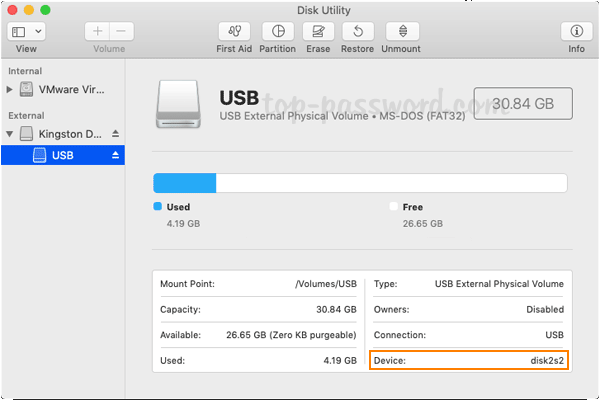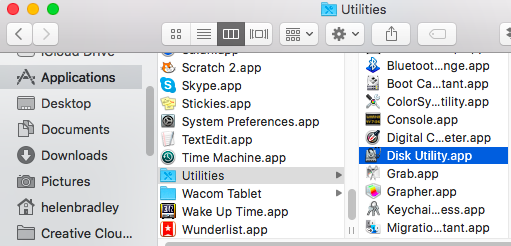

- #Usb drive format for mac and pc for free
- #Usb drive format for mac and pc how to
- #Usb drive format for mac and pc mac os
- #Usb drive format for mac and pc install

#Usb drive format for mac and pc mac os
So if you think you might need to plug the USB drive into a Mac running an older version of macOS, format it as Mac OS Extended.ĪPFS is optimized for SSD (solid state drive) such as flash drives, so if you reformat a flash drive on a Mac, you should definitely choose APFS (unless you plan to use it with a pre-High Sierra Mac, of course). Which should you choose? The key point is that disks formatted as APFS won’t be recognized by Macs running versions of macOS older than High Sierra. If your Mac is running macOS High Sierra or later, you have two options for file formats: APFS and Mac OS Extended.
#Usb drive format for mac and pc for free
You can download CleanMyMac X for free here. It’s specifically designed to securely delete sensitive data and will render it unrecoverable. If you have confidential files or sensitive data you need to remove from your Mac completely, you should use CleanMyMac’s File Shredder. Tip: You don’t need to erase a whole drive to delete files securely. However, it also increases the time it takes to format the drive quite considerably. The further to the right you move the slider, the more ‘passes’ the erase tool will make and the more securely files will be deleted.

Choose a security level using the slider. If you have previously stored sensitive data on the drive, click the Security tab.Ĩ. In the window that drops down type a name for the formatted drive in the box next to Name.Ħ. Click on the USB drive in the sidebar and then choose Erase from the toolbar at the top of the window.ĥ. Once you’ve copied any files you need from the USB drive to your Mac, go to Applications>Utilities and double-click on Disk Utility.Ĥ. The process of reformatting it will wipe all the data from it.ģ. Make sure it has no files on it that you need. Open a new Finder window and click on the drive. Plug the drive into a USB socket (if you have a recent MacBook or MacBook Pro that only has USB-C connectors, you’ll need a USB-C to USB-A adaptor).Ģ. It’s exactly the same procedure if you need to reformat a flash drive on a Mac.
#Usb drive format for mac and pc how to
So, if you’ve bought a USB drive that’s formatted as Fat32, or any other format other than Mac OS Extended (also known as HFS+) or APFS, here’s how to format a USB drive on Mac. Drives formatted as Fat32 can be read from and written to by macOS, but it’s not optimal and you’re more likely to run into problems than if you use macOS’ native format. That’s because most of the computers in the world run Windows, and Windows uses a different file system, usually one known as Fat32. However, unless it’s been designed for use with a Mac, it won’t be formatted using macOS’ preferred file system (either Mac OS Extended or APFS, depending on which version of macOS you’re running). Nowadays, when you buy a USB drive, you can use it right out of the box with your Mac. If you have made the mistake of buying a flash drive they run on a FAT32 file format you don’t have to discard it altogether. If your drive is an APFS format or a Mac OS format you can format your drive easily but if it is a FAT32 format this may be a problem.
#Usb drive format for mac and pc install
However, for this you need to follow the next steps: Install the Parallels Desktop emulator on your Mac OS Install Windows on Parallels Desktop Download HP USB Disk Storage Format Tool on Mac, install it on emulated Windows. The HP USB Format Tool allows you to format the USB flash drive in the Mac OS X.


 0 kommentar(er)
0 kommentar(er)
